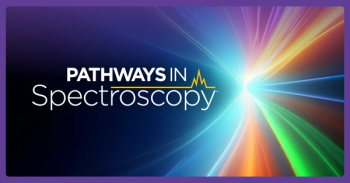
A Career in Mass Spectrometry: An EAS Interview with John McLean
At the Eastern Analytical Symposium in Princeton, New Jersey, John McLean shared his thoughts about his career in mass spectrometry.
John McLean of Vanderbilt University was named the winner of the 2023 EAS Award for Outstanding Achievements in Mass Spectrometry at the Eastern Analytical Symposium (EAS) in Princeton, New Jersey. As part of our ongoing conference coverage at EAS, Spectroscopy magazine met with McLean to discuss his research, which focuses on the conceptualization, design, and construction of ion mobility-mass spectrometers (IM–MS) and structural mass spectrometers, specifically targeting complex samples in systems, synthetic, and chemical biology.
He earned his PhD at George Washington University in 2001. It was at George Washington where he developed inductively coupled plasma mass spectrometry (ICP-MS) instrumentation for ultratrace elemental analysis. He subsequently performed postdoctoral research at Forschungszentrum Jülich in Germany, and then at Texas A&M University before beginning at Vanderbilt University in 2006.
In this video interview conducted at EAS, McLean answers the following questions:
- What brings you to EAS? (00:16–00:44)
- What drew you and what keeps you drawn to studying mass spectrometry (MS)? (00:45–01:23)
- What are some of the notable moments in your career? (01:24–01:59)
- What does receiving the 2023 EAS Award for Outstanding Achievements in Mass Spectrometry mean to you? (02:00–02:26)
- What are the next steps in your research? (02:27–03:05)
To view our other conference coverage from EAS, click the link below:
Newsletter
Get essential updates on the latest spectroscopy technologies, regulatory standards, and best practices—subscribe today to Spectroscopy.




